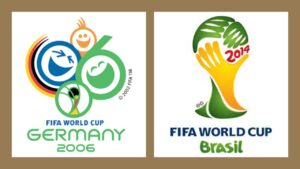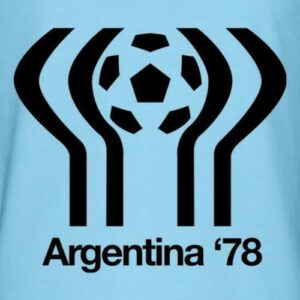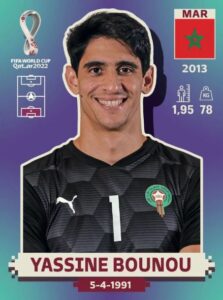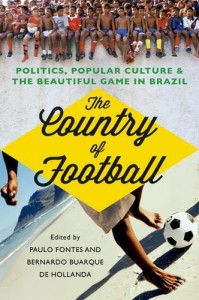2022 World Cup – Friday 09 December 2022
After a rest of a couple of days, the action resumes with the Quarter Finals split over two days. Both games evoke different memories from encounters of the past.
 Croatia v Brazil (Education City Stadium, Al Rayyan)
Croatia v Brazil (Education City Stadium, Al Rayyan)
Croatia will be underdogs going into this game and history isn’t on their side either, with the Kockasti (Checkered Ones) losing their last two World Cup exchanges with the five-times World Champions. They met in 2006 in a group game during the tournament in Germany, with a second encounter 8 years later when Brazil were the hosts. The game against Croatia was the opening match of the competition and history was made when a Marcelo own goal became the first to be the opening goal in any World Cup. Sadly for Croatia despite a decent display they ended up on the end of a 3-1 defeat. My abiding memory is of Neymar and his histrionics which put this viewer at the time firmly against Brazil. As we know the hosts would reach the Semi-Finals only to be humiliated 7-1 by Germany. Some will say that was karma.
Whilst the Croatians have gone about their business in an understated way, they needed to penalties to overcome Japan in the last sixteen and the feeling is that Brazil will have too much for the Europeans.
 Netherlands v Argentina (Lusail Iconic Stadium, Lusail)
Netherlands v Argentina (Lusail Iconic Stadium, Lusail)
For me whenever these two teams meet, I’m transported back the 1978 Final in Argentina, and mas as a sixteen year old more interested in football than revising for my O-levels. As now the tournament was surrounded by controversy, with allegations of match-fixing by the military junta government and suppression of any political opposition. At times it felt like one big exercise in propaganda.
The final itself saw the hosts line up against the Dutch without the legend that was Johan Cruyff, having retired from international football in October 1977. The fixture was played at the River Plate Stadium and the tickertape that rained down from the stands was an incredible sight – and was so great in volume that it littered the pitch throughout the game. In a highly charged atmosphere Mario Kempes gave the home team the lead on thirty-five minutes. It looked like that might be enough but with eight minutes remaining Dick Nanninga leapt highest to head home to take the game into extra-time. However, it was to be disappointment for a second successive final for the Netherlands as a second goal for Kempes goal and one for Daniel Bertoni sealed a 3-1 win and Argentina’s first World Cup success.
Genuinely not sure how this one will go. No fan of Argentina so more than happy to see Messi retire from the international scene without a winners medal. I’d like to see the Netherlands progress but they have been less that convincing and perhaps their best chance of getting through is penalties. Reality though is probably an Argentinian victory.
 Morocco 0 (0) – (0) 0 Spain AET. Morocco win 3-0 on penalties (Stadium 974, Doha)
Morocco 0 (0) – (0) 0 Spain AET. Morocco win 3-0 on penalties (Stadium 974, Doha) Portugal 6 (2) – (0) 1 Switzerland (Lusail Iconic Stadium, Lusail)
Portugal 6 (2) – (0) 1 Switzerland (Lusail Iconic Stadium, Lusail) There is within the book a chapter titled, The Football Family, in which the author takes a tongue in cheek look at the range of fans, from the armchair variety concerned only with the Premier League and Champions League to those whose passion is seeking out the most obscure leagues, games and teams from around the globe. As Hartley says, “there’s no single kind of football supporter.”
There is within the book a chapter titled, The Football Family, in which the author takes a tongue in cheek look at the range of fans, from the armchair variety concerned only with the Premier League and Champions League to those whose passion is seeking out the most obscure leagues, games and teams from around the globe. As Hartley says, “there’s no single kind of football supporter.” If you wanted to look back on the events of the 2014 FIFA World Cup in Brazil you might check out the internet, look at some video highlights, read some articles on-line or maybe lookup some of the books written about the tournament.
If you wanted to look back on the events of the 2014 FIFA World Cup in Brazil you might check out the internet, look at some video highlights, read some articles on-line or maybe lookup some of the books written about the tournament. When many people think of Brazil, they conjure up images of a joyful mix of football, samba, carnival and beaches and therefore maybe puzzled by the demonstrations that have occurred in the preparation and build-up to the World Cup. The reality is that Brazil is a complicated country which as the introduction to The Country of Football says, “…stems from its explosive growth, and the struggles to adapt economics, social and political institutions to the new realities of the country…”.
When many people think of Brazil, they conjure up images of a joyful mix of football, samba, carnival and beaches and therefore maybe puzzled by the demonstrations that have occurred in the preparation and build-up to the World Cup. The reality is that Brazil is a complicated country which as the introduction to The Country of Football says, “…stems from its explosive growth, and the struggles to adapt economics, social and political institutions to the new realities of the country…”.